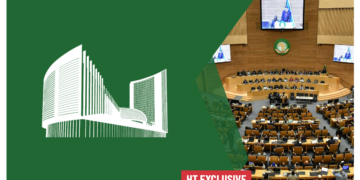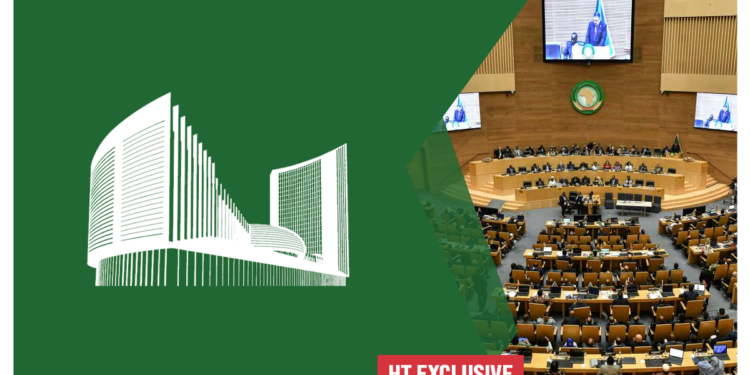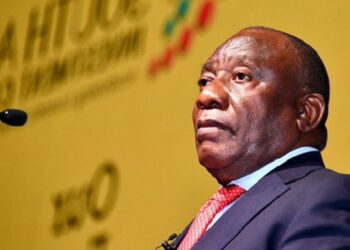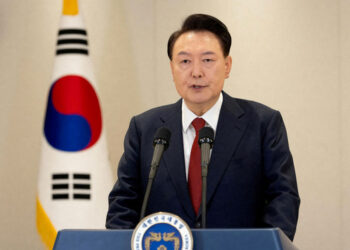By Enyichukwu Enemanna
The recently concluded 38th Summit of the African Union (AU) in Addis Ababa, Ethiopia, presented an opportunity for African leaders to embark on a soul-search, tinker with the way forward for the continent, answer nagging questions regarding the future, leverage communal strength as against external “support” to tackle key developmental challenges confronting the over 1.4 billion population, and, most importantly, draw the attention of the world to century-long unsettled issues of injustices against Africa.
The Summit, themed “Justice for Africans and People of African Descent Through Reparations,” is a follow-up to the 37th ordinary session of the Assembly of the African Union in February 2024, where heads of state and governments made a landmark decision to dedicate the year 2025 to the pursuit of reparatory justice. Analysts see this as a demonstration of collective effort to seek redress for historical unfair treatments and their lingering consequences, which have impacted generations of people of African descent.
These injustices arise from a plethora of inhumane treatments meted out to the continent, including colonialism, which still has an enduring impact to date, slavery, systemic exploitation, the transatlantic slave trade, and apartheid, which have left visible scars in the heart of a people seeking commensurate succour by way of addressing huge economic disparities, cultural and identity reclamation, and the restoration of dignity, rights, and well-being from century-long deprivation.
In his speech at the gathering, Ghana’s President, John Dramani Mahama, underlined the need for actions aimed at addressing the deep-rooted dissatisfaction of the African continent beyond mere acknowledgement by the aggressors. As he rightly put it, “The transatlantic slave trade was one of the heinous crimes against humanity, spanning about 400 years and forcibly displacing more than 12.5 million Africans. It is estimated that at least two million of our compatriots perished during the Middle Passage alone.”
Mahama also drew the attention of the pan-African gathering to the inherently wrong treatment children of the enslaved are still subjected to on the basis of their skin colour and geographical configuration. “The legacy of this brutal system, along with colonialism, apartheid, genocide and neo-colonial exploitation have left deep and enduring scars in the fabric of our society. Today the descendants of enslaved Africans continue to face economic disparities, social inequality, systemic discrimination and racial prejudices.”
Reparations for Human, Economic Losses
Leaders of the 55-nation continent, during the Addis Ababa Summit, were all in agreement that the huge human and material losses incurred during the colonial era must not be swept under the carpet. Rather, since lives lost and resources exploited cannot be returned just as stolen artefacts and cultural symbols are being repatriated to Africa, only reparatory justice that involves not just financial compensation but also restitution, reconstruction, and restoration, as well as a pledge that such a crime against humanity can never happen again in human history, can assuage the pain.
Historical estimates indicate that Africa lost trillions of dollars in both human and material resources as a result of colonial exploitation. The forceful extraction of mineral deposits, the conversion of cash crops from African soil, and forced labour denied the continent the capital and infrastructure necessary for sustainable development.
The colonialists also rolled out policies considered obnoxious, which stifled economic growth, leaving Africa heavily dependent on foreign economies, an injustice that dates back to the 15th- to 19th-century colonial oppression and is still with us today. The continent’s debt crisis, for instance, can be traced back to African nations being saddled with heavy debts upon independence. Climate change can also be linked to colonialism, as Africa is responsible for just a fraction of global carbon emissions. Sadly, its fragile ecosystems have borne the brunt of global warming, while the highest emitters, including the US, simply watch.
Despite relentless pushes in the past, which the Addis Ababa Summit also sought to re-echo, the Western world has clearly downplayed efforts to initiate reparatory justice for Africa. U.S. President Donald Trump was quoted as saying he “doesn’t see it (reparations) happening,” a sentiment shared by many of Europe’s leaders who opposed even talking about it.
Galvanising for Economic Self-Reliance
So much has been said about how Africa is blessed with some of the most valuable mineral resources, a good climate, arable land, and even abundant human resources. At the Summit in Ethiopia, this issue incidentally occupied a front burner in the discourse. Despite what Africa represents in terms of resources beneath the earth, it remains one of the most economically disadvantaged among its peers, largely due to the management of these natural endowments.
Several factors, sometimes external, have been cited as reasons why the continent still shivers at the mention of financial aid withdrawal by the West. Mineral extraction without concrete development, the undervaluation of Africa’s economies in global credit ratings, and systemic barriers to trade and investment have held Africa back.
During the opening of the 46th Ordinary Session of the AU Executive Council, Executive Secretary of the United Nations Economic Commission for Africa, Claver Gatete, highlighted the “stark inequalities” plaguing the continent.
According to Gatete, Africa holds 30 percent of the world’s mineral reserves, including 40 percent of its gold and up to 90 percent of its chromium and platinum. It also contains as much as 65 percent of the world’s arable land. Yet, economic uncertainty and food insecurity still pose a threat.
Despite its rich resources, Africa accounts for less than 3 percent of international trade and only 1 percent of the world’s manufacturing output. “In global finance, it is also unjust that the entire African continent, with over 50 countries, has an IMF (International Monetary Fund) shareholding equal to that of a single country, Germany,” Gatete said.
Nothing should be holding Africa back from moving rapidly towards unity, self-determination, and collective prosperity. With its vast resources, economic integration which seeks to dismantle structural inequalities and establish Africa as an influential player on the global checkerboard should be the target.
As the continent with the world’s largest free trade area and a market of more than 1 billion people, Africa shouldn’t be gripped by fear of “sanctions.” The plethora of executive orders signed by U.S. President Donald Trump, especially those stripping USAID of funding, withdrawing the U.S. from WHO, cutting HIV/AIDS funding, and suspending financial aid to South Africa over a land administration law he found unsavoury, shouldn’t be giving Africa any sleepless nights if it had embraced economic self-reliance centuries ago.
As has been widely admitted, Africa’s problems can only be solved by Africans, not foreign powers. The much-needed economic independence to accelerate development on the continent can only be achieved from within. According to Gatete, Africa received merely 2 percent of the 10-trillion-U.S.-dollar global investment in clean energy between 2015 and 2022, yet climate change is costing Africa up to 5 percent of its gross domestic product (GDP).
Africa’s economic independence is also prominently highlighted in the AU’s Agenda 2063 goals, which anchor on a “Prosperous Africa based on Inclusive Growth and Sustainable Development.” The aim is to utilise instruments such as the African Continental Free Trade Area (AfCFTA) and other initiatives to build a continent with strong domestic economies, robust intra-African trade, value-added industries, and reduced reliance on external aid.
Visa-Free Movement
The call for a visa-free continent also took centre stage at the Summit, with the African Development Bank (AfDB) positioning itself as a loud voice in urging African governments to accelerate the removal of visa restrictions that continue to hinder regional integration, trade, and economic development.
AU officials, policymakers, and business leaders highlighted the contradiction between Africa’s regional integration goals and the reality that many Africans still need visas to travel across the continent.
“We cannot talk about a united Africa if Africans themselves cannot move freely within their own continent. It is time for our governments to evaluate what has worked and what has not worked,” said Ambassador Albert Mudenda Muchanga, the African Union Commissioner for Economic Development, Trade, Tourism, Industry, and Minerals. Visa restrictions remain one of the biggest barriers to intra-African trade, he added.
The AU Free Movement Protocol and Agenda 2063’s vision of a borderless Africa is a masterstroke believed to hold the key to further unlocking the continent’s potential. “The vision of an integrated Africa will not happen by chance. It requires bold leadership and collective commitment to dismantle visa barriers,” noted Nnenna Nwabufo, Vice President for Regional Development, Integration, and Business Delivery at AfDB.
With over 50% of African nations requiring visas for most Africans, restricted mobility hampers labour migration, business and trade, skills, and innovation, thereby slowing development. “If we truly believe in the AfCFTA, then free movement must be the backbone of our integration. We must align trade facilitation with mobility, because goods do not move themselves; people move them,” Rwanda’s Minister of Trade and Industry, Mr. Prudence Sebahizi, said.
New Leadership of AU Commission
Another takeaway from the Addis Ababa gathering was the election of Mahmoud Ali Youssouf, who has been Djibouti’s Foreign Minister since 2005, as the new Chairperson of the African Union Commission (AUC), succeeding Moussa Faki Mahamat of Chad, who served two consecutive terms since 2017.
His election, which he won against two other prominent candidates, Kenya’s former Prime Minister and veteran opposition leader, Raila Odinga, and former Foreign Affairs Minister of the Republic of Madagascar, Richard Randriamandrato, is seen as strategic in helping Africa navigate these difficult times, having been in the corridors of diplomacy since the 1990s.
Youssouf is expected to work towards strengthening the bond of unity and peaceful co-existence in Africa, especially as six AU members remain suspended from the Union over their involvement in political conflicts and coups.
He is also familiar with the conflict in the Horn of Africa, which has lingered for decades. His country, Djibouti, borders Somalia, Somaliland, and even Ethiopia, the host country for the Summit, which has been engulfed in crisis over the past three years due to the Tigray war.
It is hoped that he will leverage his decades of experience in diplomacy to empower the AU to bring about relative stability, even in the ongoing diplomatic tensions between the DRC and Rwanda, Sudan, South Sudan, and other African countries where peace has long been elusive.
Before his election, Youssouf had vowed last year to work on “silencing the guns” on the continent. “Silencing the gun, you know, preventing conflicts, resolving those wars and internal crises … that we are faced with already is one of the priorities,” he said. “Of course, this is something that we need to work on, and I’ll make sure that the commission will concentrate on that particular programme.”
Youssouf also stated that he would work to reform the organisation, recruit the most qualified and skilled Africans, and make excellence, merit, and competence the key principles. “If you have a good staff at the commission, it will be much easier for all of us to implement the reforms that have already been enacted by our leaders,” he said.




































